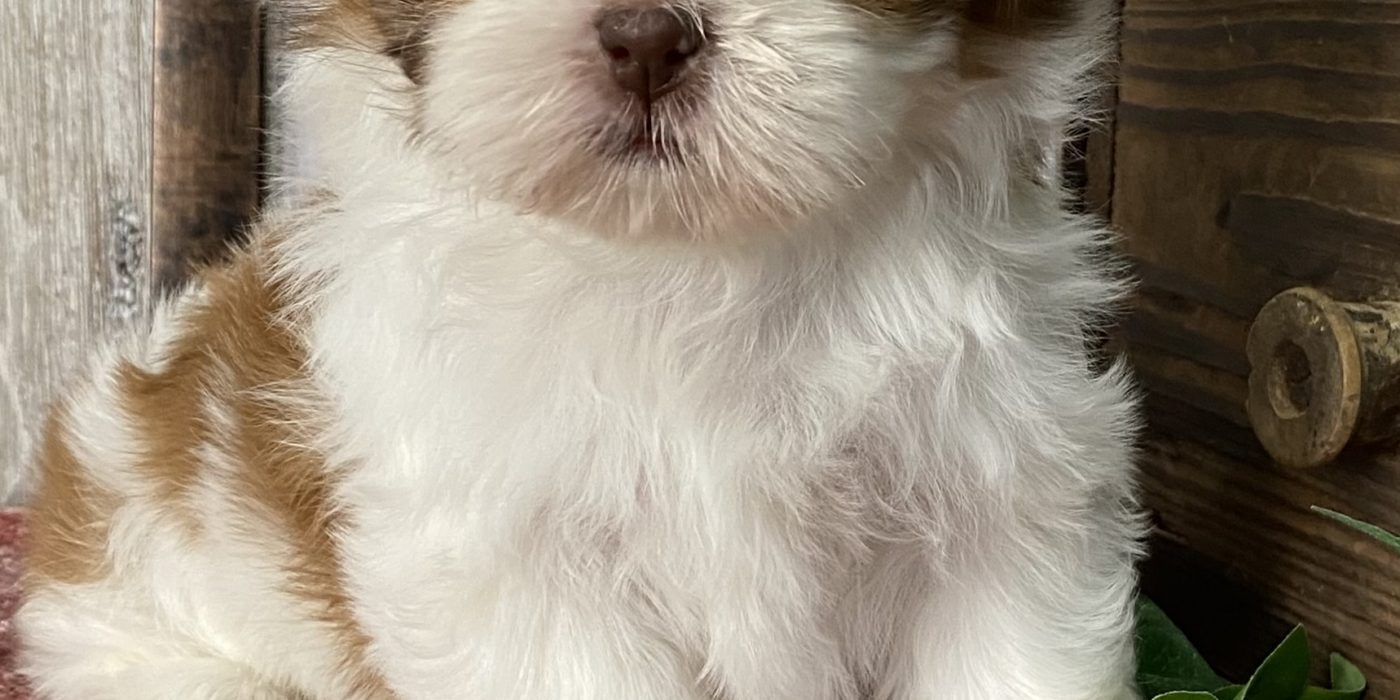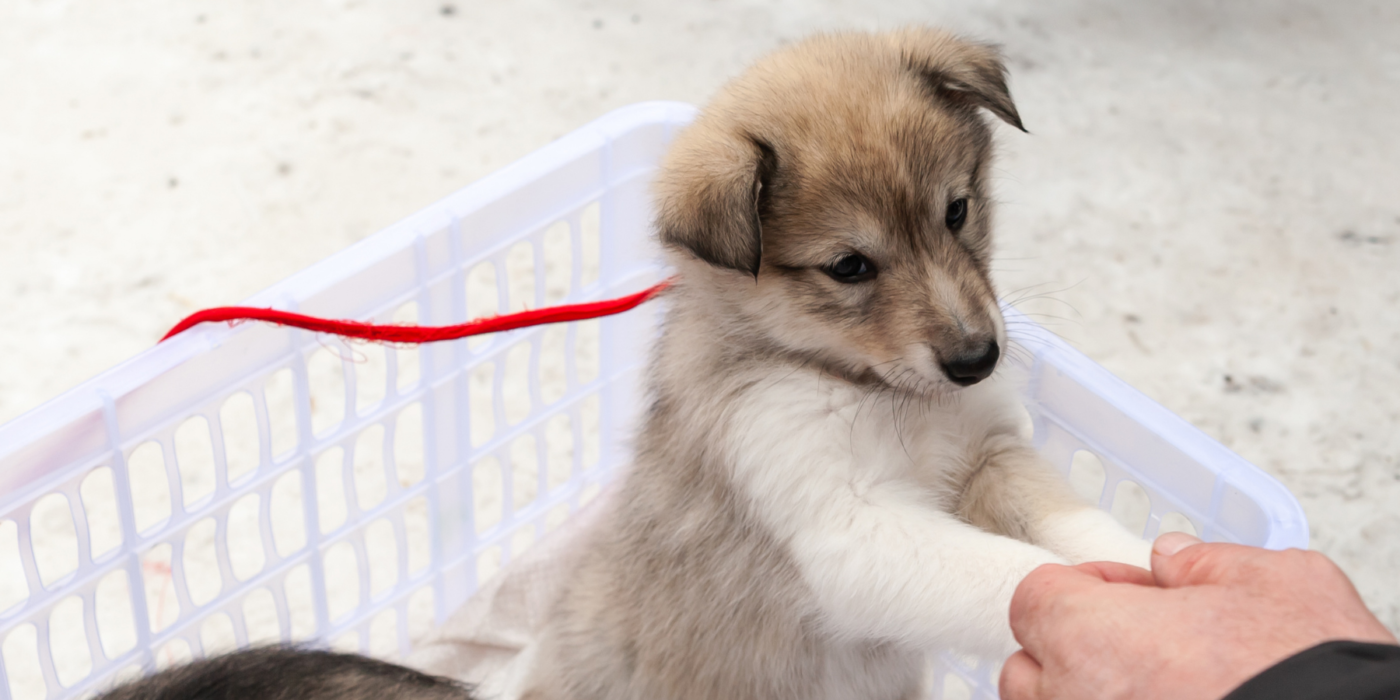How to Care for Your New Puppy
Introducing a new puppy to the family is fun and exciting, but it also requires a lot of work and support. Puppies have lots of energy and need constant attention.
With enough time and dedication, you can conquer the challenges of raising a puppy. For now, let this blog be your guide on how to care for your puppy.
Puppy-Proof Your Home
Before you bring your new fur baby home, make sure to puppy-proof everything. Puppies are curious animals who love to explore and get into things. You want to hide things that could harm the puppy.
How to Puppy-Proof
Effective puppy-proofing includes hiding cords, tying up curtains, and putting away cleaning chemicals. Puppies also love to knock things over, so investing in a secured or heavy-duty trash can help prevent messy events. Paying close attention to your puppy during the first few months will ensure that they don’t get into things they shouldn’t.
Another valuable puppy-proofing asset is getting a dog crate or baby gate. Crates are helpful for potty training and giving your puppy a secure place to sleep at night. Installing baby gates helps you keep track of your pup and prevent them from getting into things. Puppy-proofing the home is essentially the same as babyproofing.
Get the Necessary Supplies
After puppy-proofing the house, it’s time to make sure you have enough supplies. Caring for your puppy requires some basic essentials.
- Leash
- Collar
- Food bowl
- Water bowl
- Dog bed
- Dog food
- Brush
- Shampoo
Puppies are extremely playful, so you should get some fun toys as well. Having the right supplies makes raising your little furry friend easier while keeping them happy and healthy.
Maintain a Healthy Diet
Taking care of your puppy’s health is one of the most important things you can do as a pet owner. An essential part of maintaining their health is incorporating a wholesome diet.
Determining the Best Diet
The age and stage of life of your puppy will determine how much they should eat. For example, a puppy under three months old should be free-eating, whereas a puppy older than three months should be eating about three meals every day. From birth until about six weeks old, they will rely on their mother’s milk rather than typical dog food.
When it comes to picking out dog food, your veterinarian is one of your greatest resources. Different breeds of dogs will have varying dietary needs. Your vet can help you learn about your dog’s specific needs and ensure that you get the best food for them.
Part of maintaining a well-rounded diet is knowing which foods to avoid feeding your pets. If you decide to share a treat with your pet, make sure to avoid these foods.
- Chocolate
- Grapes
- Avocados
- Macadamia nuts
- Chicken or turkey bones
- Raw meat
- Sugar
- Dairy
- Onions
- Garlic
- Caffeinated beverages
An essential part of ensuring proper growth includes a healthy balance of protein, carbohydrates, and fats in your dog’s diet. Half of your pup’s dog food should consist of protein to support growth and strong bones. Carbohydrates and fats give your pup the fiber and vitamins they need to stay happy and active.
Find a Veterinarian
Just like you go to the doctor for a checkup, it is vital to have a veterinarian for your pets. The first vet visit should be within the first few days of bringing your new pup home. This is especially important if you get your dog from a shelter.
During the initial visit, your vet will evaluate your dog’s overall health and look for things that could be signs of illness or infection.
You will likely return to the vet’s office several times during the first six months of having your new dog. This is for vaccines and to make sure that your young dog is growing properly. During the sixth month, your vet will discuss spaying and neutering options for your dog.
Establishing a vet during the first month of having your puppy is helpful for more than routine vaccines. From providing essential information to take care of pets during an emergency, veterinarians offer many services that support the well-being of your dog. Knowing who to go to when you have questions about your dog’s health or are in an urgent situation saves you both time and stress.
Start Puppy Training
Puppies require constant care and attention to prevent them from getting into things. Starting puppy training during the first few months of bringing them into your family encourages proper behavior and improves their quality of life.
The first thing to start is house training. Puppies don’t know where to pee and where not to unless told otherwise. House training can seem tedious, but in the end, your dog will have a better understanding of where and when to do their business.
Puppies under 12 weeks old don’t yet have control of their bladders, so remember to be patient during house training.
Aside from potty training, puppies need to learn what they can chew and what they can’t. Avoid giving your dog old shoes to chew as they can’t tell the difference between an old unwanted shoe and a new one.
Keep Them Active
Dogs of all ages love to play and have fun. Keeping them active is a critical part of maintaining a healthy lifestyle. Taking the family on daily walks or visiting the park are fun ways to engage with your puppy while keeping them active.
Puppies love to spend time with their owners and make the best furry friends! Keeping them active and including them in family events will promote a strong social bond and a happy pup.
Find the Perfect Pup
Caring for puppies can be a lot of work. With the right amount of love and attention, you will have a friend for life. If you want to bring a new furry friend home to the family, let Family Affairs Puppies help.
We offer breeding services in Indiana to help every family find their perfect fur baby.
For more information about our services, call us at 260-350-4840








